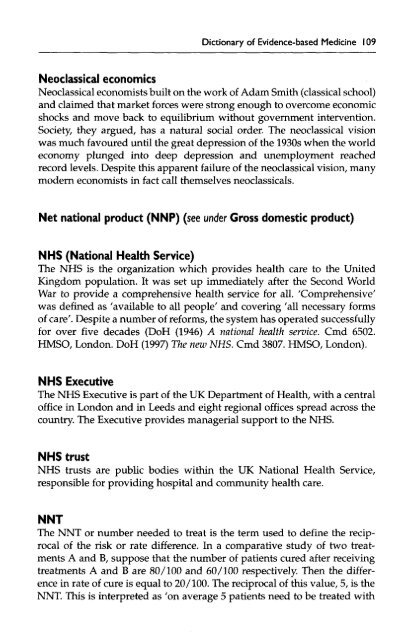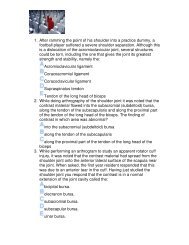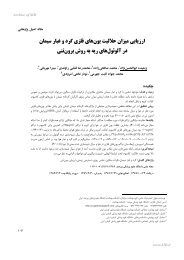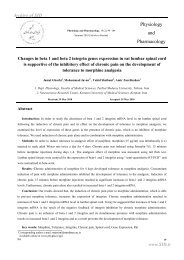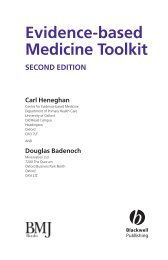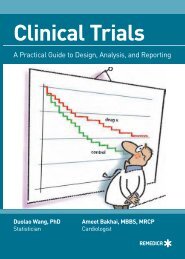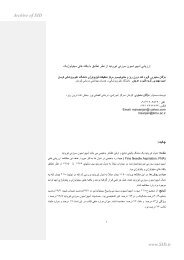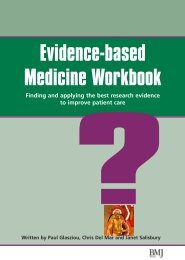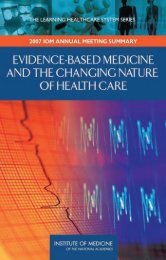Dictionary of Evidence-based Medicine.pdf
Dictionary of Evidence-based Medicine.pdf
Dictionary of Evidence-based Medicine.pdf
You also want an ePaper? Increase the reach of your titles
YUMPU automatically turns print PDFs into web optimized ePapers that Google loves.
<strong>Dictionary</strong> <strong>of</strong> <strong>Evidence</strong>-<strong>based</strong> <strong>Medicine</strong> 109<br />
Neoclassical economics<br />
Neoclassical economists built on the work <strong>of</strong> Adam Smith (classical school)<br />
and claimed that market forces were strong enough to overcome economic<br />
shocks and move back to equilibrium without government intervention.<br />
Society, they argued, has a natural social order. The neoclassical vision<br />
was much favoured until the great depression <strong>of</strong> the 1930s when the world<br />
economy plunged into deep depression and unemployment reached<br />
record levels. Despite this apparent failure <strong>of</strong> the neoclassical vision, many<br />
modern economists in fact call themselves neoclassicals.<br />
Net national product (NNP) (see under Gross domestic product)<br />
NHS (National Health Service)<br />
The NHS is the organization which provides health care to the United<br />
Kingdom population. It was set up immediately after the Second World<br />
War to provide a comprehensive health service for all. 'Comprehensive'<br />
was defined as 'available to all people' and covering 'all necessary forms<br />
<strong>of</strong> care'. Despite a number <strong>of</strong> reforms, the system has operated successfully<br />
for over five decades (DoH (1946) A national health service. Cmd 6502.<br />
HMSO, London. DoH (1997) The new NHS. Cmd 3807. HMSO, London).<br />
NHS Executive<br />
The NHS Executive is part <strong>of</strong> the UK Department <strong>of</strong> Health, with a central<br />
<strong>of</strong>fice in London and in Leeds and eight regional <strong>of</strong>fices spread across the<br />
country. The Executive provides managerial support to the NHS.<br />
NHS trust<br />
NHS trusts are public bodies within the UK National Health Service,<br />
responsible for providing hospital and community health care.<br />
NNT<br />
The NNT or number needed to treat is the term used to define the reciprocal<br />
<strong>of</strong> the risk or rate difference. In a comparative study <strong>of</strong> two treatments<br />
A and B, suppose that the number <strong>of</strong> patients cured after receiving<br />
treatments A and B are 80/100 and 60/100 respectively. Then the difference<br />
in rate <strong>of</strong> cure is equal to 20/100. The reciprocal <strong>of</strong> this value, 5, is the<br />
NNT. This is interpreted as 'on average 5 patients need to be treated with


